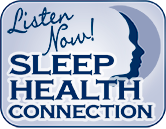Are you experiencing Jaw or Neck Pain?
You are not alone! Approximately 33% of the population has at least one TMD symptom.
TMD, Temporomandibular disorder, is a collective term used for a number of clinical problems that involve chewing muscles, jaw joint (TMJ) and associated structure. TMD is an extremely common disorder that is most often reported in individuals between the ages of 20 and 40. Signs and symptoms to be aware of include:
- pain in the head and neck muscles
- limited mouth opening
- joint sounds upon movement
TMD symptoms fluctuate over time and correlate significantly with muscle tension, tooth clenching and grinding, and other oral parafunctional habits. Some social factors, like worry, stress, frustration and depression have an impact on TMD.
TMD can be the causative factor in:
- ear pain
- dizziness
- ringing in the ears
- neck pain
- toothache
We find many of our patients seeking treatment have a break down in more than one of these systems. TMD pain is by far the most common reason patients seek treatment. The Good News? There are a large number of potentially reversible conservative therapies we offer at Sherman Oaks Dental for TMD relief.
To learn more about the therapies we offer, please call our office, 630 369-5225, to schedule a consultation with Dr. Bryan Weyneth.






(630) 369-5508